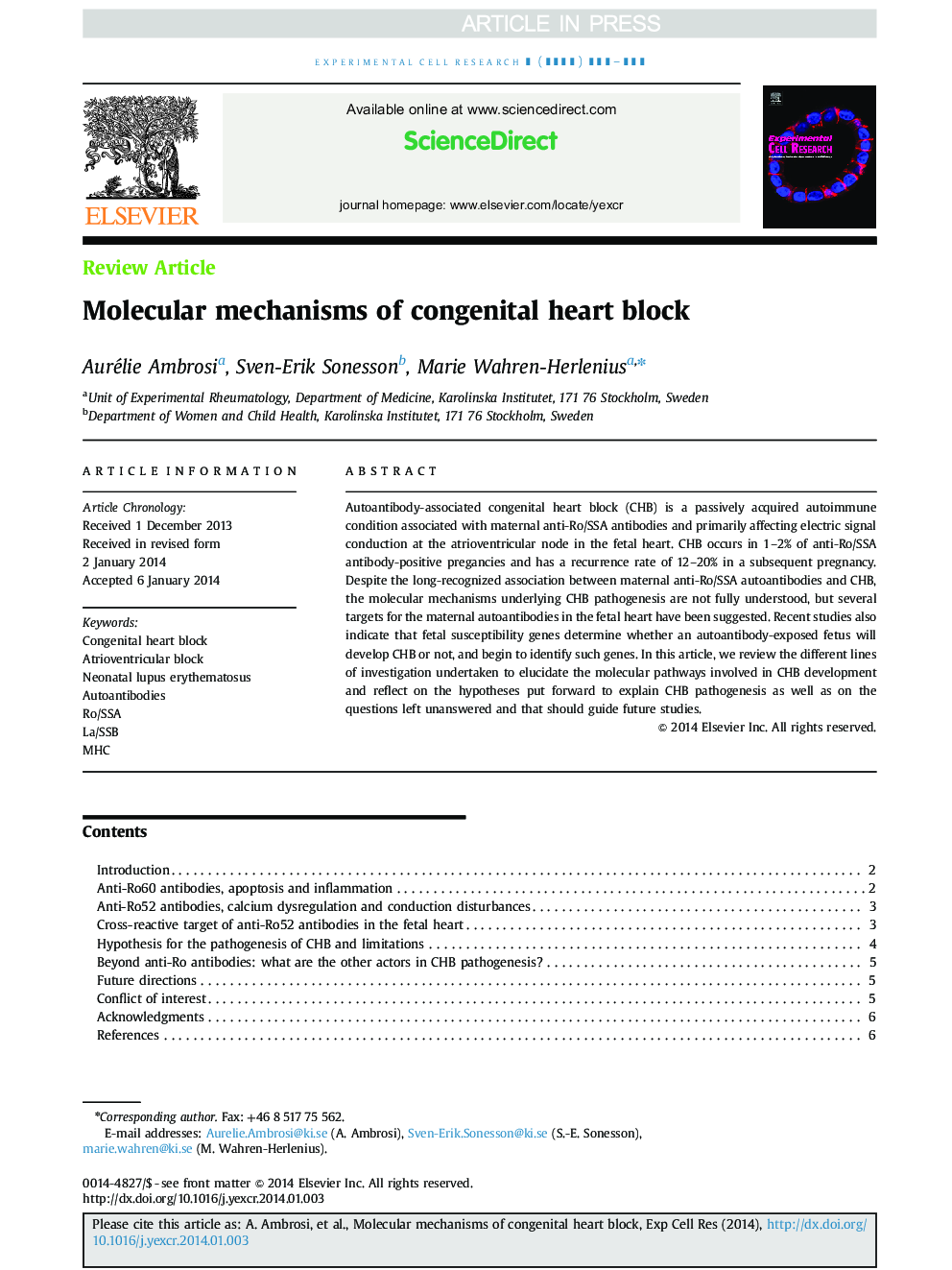| Article ID | Journal | Published Year | Pages | File Type |
|---|---|---|---|---|
| 10904121 | Experimental Cell Research | 2014 | 8 Pages |
Abstract
Autoantibody-associated congenital heart block (CHB) is a passively acquired autoimmune condition associated with maternal anti-Ro/SSA antibodies and primarily affecting electric signal conduction at the atrioventricular node in the fetal heart. CHB occurs in 1-2% of anti-Ro/SSA antibody-positive pregancies and has a recurrence rate of 12-20% in a subsequent pregnancy. Despite the long-recognized association between maternal anti-Ro/SSA autoantibodies and CHB, the molecular mechanisms underlying CHB pathogenesis are not fully understood, but several targets for the maternal autoantibodies in the fetal heart have been suggested. Recent studies also indicate that fetal susceptibility genes determine whether an autoantibody-exposed fetus will develop CHB or not, and begin to identify such genes. In this article, we review the different lines of investigation undertaken to elucidate the molecular pathways involved in CHB development and reflect on the hypotheses put forward to explain CHB pathogenesis as well as on the questions left unanswered and that should guide future studies.
Keywords
Related Topics
Life Sciences
Biochemistry, Genetics and Molecular Biology
Cancer Research
Authors
Aurélie Ambrosi, Sven-Erik Sonesson, Marie Wahren-Herlenius,
